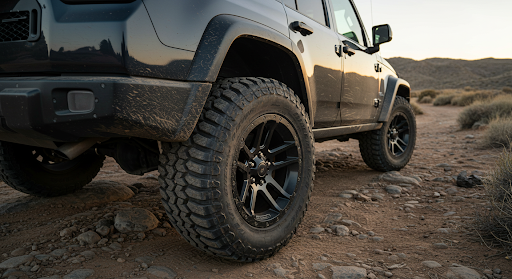
Diesel Love Affair Intensifies
Diesel powered is more than just a mileage mantra.
Two little snippets caught my eye as I sat to write this month’s report and both will gladden the heart of diesel engine enthusiasts everywhere, among whom I am a definite flag waver.
 |
| Peugeot’s 130 hp 2.0L diesel-powered 407 sedan returns 47 mpg with a quiet, refined ride. |
This is a market share for diesels of 30.9 percent, up from 26.2 percent a year ago. The forecast from the SMMT is that diesels will end up with a 32 percent share this year, rising to 34 percent in 2005. In 2002, the diesel share of the U.K. car market was 23.5 percent, placing the U.K. ninth in the Western European diesel league. If you think that the Brits buying almost one-in-three new cars as diesels is high, then consider countries like Italy, France and Austria where diesels account for more than 60 percent of all sales.
In those countries, diesel fuel is a lot cheaper, because of lower rates of tax, than in the U.K. where we pay about the same for diesel as for unleaded petrol or gasoline. Currently, that works out at about £1.90 a liter and we get 4.54 liters to a U.K. gallon and you get 3.79 liters to a U.S. gallon, so it’s certainly not the cheapness of the fuel that is encouraging the switch.
Sitting in my driveway at the moment are two cars that I would urge any U.S. visitor to Europe to try. One is a Renault M?gane Tourer (or wagon) with a 1.9L turbodiesel engine, which is mine, and regularly returns more than 45 mpg despite being used as something of a high-speed motorway cruiser, and that means travelling at U.K. motorway speeds of around 80-85 mph.
The other is Peugeot’s latest 407 sedan with a 2.0L HDi diesel engine. It’s on test and is currently returning 47 mpg. Power output is 136 hp and there’s a hefty 240 lb-ft of torque available on a nice flat curve, peaking at 2,000 rpm and not falling off noticeably. Top speed is 129 mph. Hire one, borrow one or find a taxi driver with one (easy if you plan to visit France) but don’t miss out on the chance to be in one, even if you can’t drive it. You will be amazed at how quiet and effortless the modern diesel has become.
And that of course, is the big attraction. It’s not that everyone in Europe has short arms and deep pockets — we genuinely like the diesel driving characteristics.
If the fuel companies are to be believed, we also like to make sure we put the best fuel into our diesels. In recent years a number of ultralow sulphur diesel fuels have been developed, mainly for distribution in city centers where particle emissions have been perceived as a possible health threat.
BP, the oil company, has launched a new range of fuels called Ultimate with the tag line “more performance, less pollution.” Do people buy fuel by brands? I remember my father always insisting on using Shell, claiming it gave better performance (this would have been in the ’50s and ’60s — remember the “You can be sure of Shell” jingle?). It wasn’t until Esso came along with the “Put a tiger in you tank” slogan that he changed his mind and claimed that our 6-cylinder 2.5L fuel injected Triumph went better than ever on Esso.
Last month (June), BP opened its 1,000th forecourt in the U.K. selling Ultimate, which it says is the U.K.’s first and only performance diesel. Ultimate diesel has a guaranteed cetane rating of 55, compared with regular diesel at 51, and BP claims that it can reduce the noise and smoke in a diesel vehicle by up to 30 percent. I am always a little cynical over these claims, even after years of enduring endless technical presentations on the subject.
But there’s no doubt that smokin’, noisy diesels have been banished from Western Europe. What is needed now is for drivers in the U.S. to realize the benefits of modern diesels. For most, it would at least halve their fuel consumption, which would do wonders for making fossil fuels last longer.
Or you could all turn down your air conditioning and double-glaze your windows at home to save the winter heating bills. Easier to switch to diesels, probably.
This article was provided exclusively to Automotive Industries by Interchange, a U.K.-based automotive business agency and consultancy servicing media and corporate clients. Anthony Lewis is a partner in Interchange and can be contacted via e-mail at interchangenews@aol.com.









More Stories
Best Wheel Size for Off-Road Adventures: What People Get Wrong
Trusted Auto Collision Repair That Restores Both Performance and Peace of Mind
What You Need to Know About Tire Pressure in Winter vs Summer